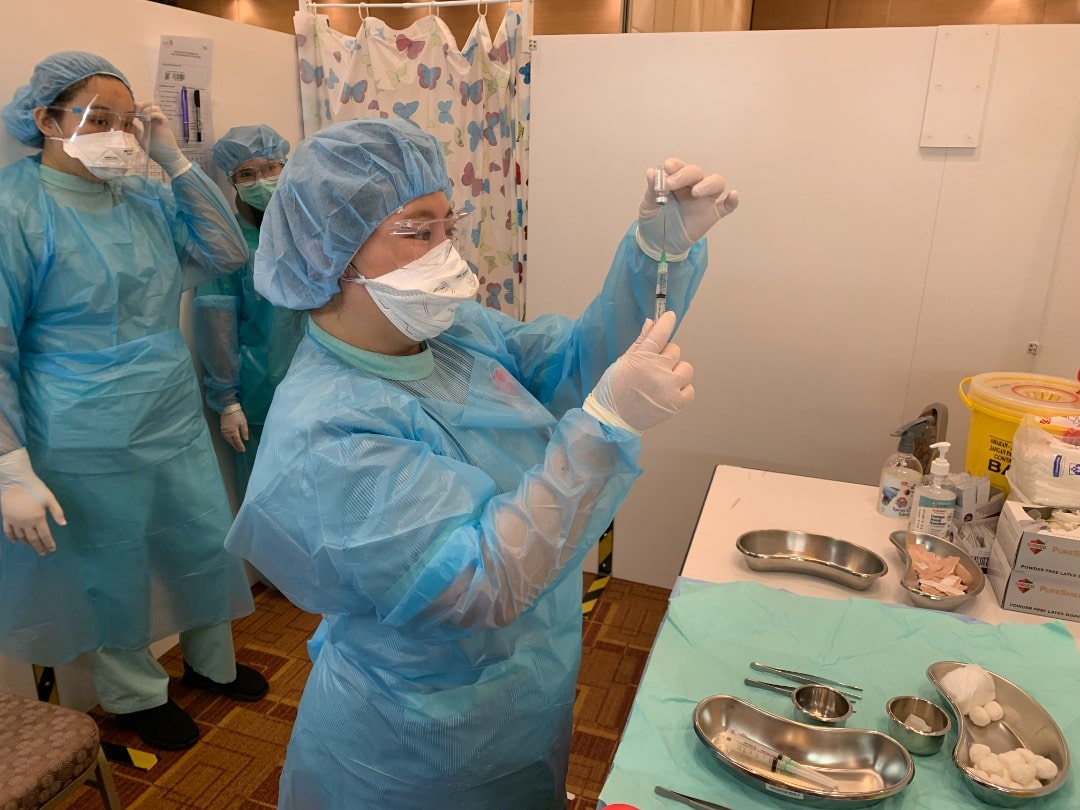KUALA LUMPUR, March 7 – Malaysian researchers are working to produce jab-free Covid-19 vaccines that can be administered orally or through nasal sprays.
Science, Technology and Innovation Deputy Minister Ahmad Amzad Hashim told Parliament today that such vaccines could act as an appealing alternative to both children and adults with fear of needles that may have contributed to vaccine hesitancy.
Ahmad Amzad said there are two variant-specific Covid-19 vaccines being developed by the Institute of Medical Research (IMR) under the Ministry of Health (MOH) – one is an inactive vaccine and another an mRNA vaccine – while four other Covid vaccines are being worked on using funds by the Ministry of Science, Technology and Innovation (MOSTI).
The allocation for the two IMR vaccines amounts to RM3.4 million, using funds under MOH and the government’s Sukuk Prihatin programme.
The Covid vaccines being developed under MOSTI include the development of a mucosal vaccine using generally regarded as safe (GRAS) bacteria for RM2.23 million, an oral Covid vaccine using vibrio cholerae strain (RM1.057 million), a pan-coronavirus vaccine (RM1.79 million), and the construction of recombinant Newcastle disease virus receptor-binding domain (RBD) protein of SARS-CoV-2 virus as a vaccine candidate (RM2.7 million).
The latter is currently at a preclinical testing stage using animals. The four projects are funded through the MOSTI Combating Covid-19 Fund (MCCOF) and the Strategic Research Fund (SRF).
Ahmad Amzad said this in response to a question by Libaran MP Zakaria Mohd Edris on the latest updates on the National Vaccine Development Roadmap (PPVN) and the Malaysia Genome and Vaccine Institute (MGVI) launched in November last year.
The aim of the PPVN is to increase local capacity in the production of human vaccines and to make Malaysia a human vaccine-producing country within the next decade. The government allocated RM349.9 million to bolster MGVI over the next four years until 2025.
Ahmad Amzad said the PPVN not only involves the government, but the private sector as investors will be looking to produce vaccines locally.
“One of the key benefits of this initiative is the potentiality of incorporating halal aspects early on in the vaccine making process. As we know, the market for halal vaccines is huge,” he said.








